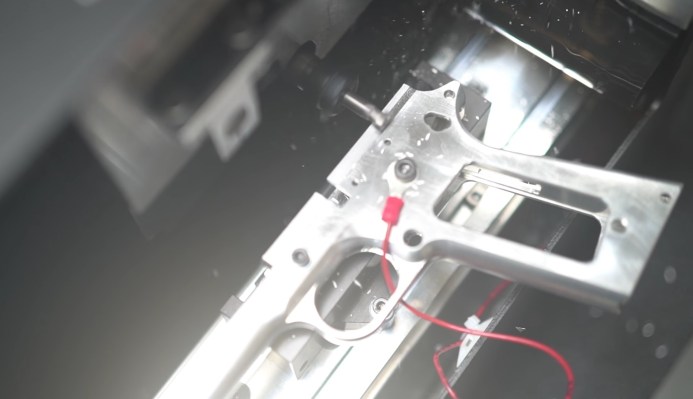Update: After several state Attorney Generals filed suit against the administration for this action, federal judges in the states of New York, New Jersey and Washington issued orders blocking it from taking effect.
Last month, the U.S. government reached a settlement that makes it legal to post plans for 3D printing fire arms.This morning, the President tweeted an objection to the ruling, a day before it’s enacted. “I am looking into 3-D [Printed] Plastic Guns being sold to the public,” Trump wrote. “Already spoke to NRA, doesn’t seem to make much sense!”
While the law doesn’t officially go into effect until Wednesday, its pending legality has already led around 1,000 users to download plans to print AR-15s, according to CNN, citing a stat from Pennsylvania AG Josh Shapiro.
While Trump is just now drawing a rhetorical line in the sand, the debate around the technology has been a hot button topic for years. The legal battle that led to the current legislation dates back to 2013, when Cody Wilson posted plans for a 3D printable plastic handset known as “The Liberator.”
Yesterday, attorneys general from eight states and Washington D.C. filed suit against the Trump administration attempting to bar a Texas-based company called Defense Distributed from publishing its own blueprints for 3D printed firearms.
The suit reads, in part,
3-D printed guns are functional weapons that are often unrecognizable by standard metal detectors because they are made out of materials other than metal (e.g., plastic) and untraceable because they contain no serial numbers. Anyone with access to the [Computer Aided Design] files and a commercially available 3-D printer could readily manufacture, possess, or sell such a weapon—even those persons statutorily ineligible to possess firearms, including violent felons, the mentally ill and persons subject to protection and no-contact orders.
Defense Distributed, naturally, hailed the Trump June ruling. “No prior CNC knowledge or experience is required to manufacture from design files. Legally manufacture unserialized rifles and pistols in the comfort and privacy of home.”
The NRA, for its part, has largely been silent on the matter, issuing a statement today that neatly sidesteps having to take a position on the matter at hand:
Many anti-gun politicians and members of the media have wrongly claimed that 3-D printing technology will allow for the production and widespread proliferation of undetectable plastic firearms. Regardless of what a person may be able to publish on the Internet, undetectable plastic guns have been illegal for 30 years. Federal law passed in 1988, crafted with the NRA’s support, makes it unlawful to manufacture, import, sell, ship, deliver, possess, transfer, or receive an undetectable firearm.
